
The Water Sifu
Ty Whitman
Educational and informative shows designed to help everyone pass their state water operator certification exams. This podcast is created by a water worker not only for anyone in the industry, but anyone who's ever been curious about it.
- 33 minutes 28 secondsWater Sifu #29: 10 Year Reunion
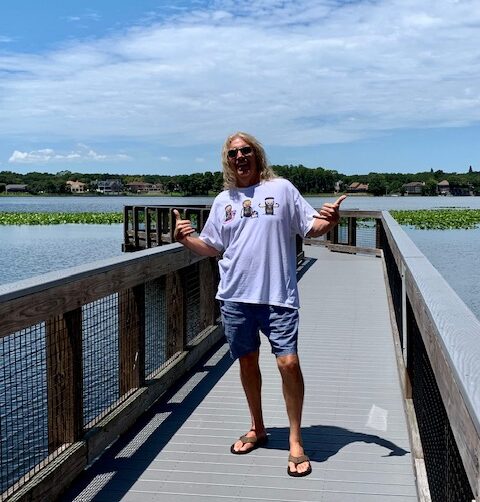
In this “10 year anniversary” episode, I want to take the time to say thank you, answer some very common questions about the website and the best way to use the material on it, give an update on my life, and share a few other items I think you might like.
28 July 2022, 3:50 pm - Water Sifu #28: Chemicals in Water Treatment
In this episode I answer a couple of common questions I often receive pertaining to searching for jobs in the water industry. I discuss a speech I recently gave about this podcast, and then we hop into the meat of the show covering chemicals we use in treatment. We discuss ferric chloride and alum as coagulants, lime and carbon dioxide for alkalininty, hardness, and pH control, and gas chlorine, liquid chlorine, and chloramines as disinfectants. We also discuss perchorate and, wrapping up the show, I ask you to do me a favor.
As discussed in the show, below are some chemical equations for subjects which we covered:
Adding gas chlorine to water drops pH by formation of two acids:
Cl2 + H2O = HOCL (Hypochlorous) + HCL (Hydrochloric Acid)Hypochlorous acid breaking into the hypochlorite ion at higher pH:
OH (Hydroxyl) + HOCL (Hypochlorous) = H2O (Water) + OCL (Hypochlorite)Adding liquid chlorine to water raises pH by forming caustic soda:
NaOCL (Sodium Hypochlorite) + H2O = HOCL + NaOH (Sodium Hydroxide / Caustic Soda)The combination of hypochlorous acid and ammonia forms chloramines:
NH3 + HOCl = NH2Cl + H2O13 August 2012, 2:27 am - Water Sifu #27: Membrane Filtration
Membrane Filtration is the wave of the future in the water treatment field. This month I spend a little time talking about my new job and the last State Treatment Exam, and then get into talking about membrane filtration in depth.
Membrane plants are totally different from plant to plant, so we talk about the different types of plants first and then jump into the items they all have in common. In this show we cover the difference between pressure systems and submersible, suction systems. We discuss the difference between microfiltration, ultrafiltration, nanofiltration, and reverse osmosis. We then discuss several methods of cleaning membrane systems and judging membrane performance common to most plants… flux or flow, trans-membrane pressure, permeability, membrane integrity testing, backwashing, or CIP’s and recovery cleans.
13 July 2012, 9:58 pm - Water Sifu #26: Never Say Never… Advanced Treatment Audio Flash Cards
 Advanced Treatment Audio Flash Cards
Advanced Treatment Audio Flash Cards
(click to listen in a new window)I’m back for three more monthly shows, starting with another audio flash cards show. This is one I initially made for myself, but decided to release because I think some of you could find it very helpful. I found it very helpful myself, many people have been asking me to do more audio flash cards shows, and it was on my hard drive, so here it is. It focuses on treatment techniques, government regulations, types of contaminants, MCL’s, and even gets a little into chemicals and chemistry. Hope you like it!
12 June 2012, 8:55 am - Water Sifu #25: Hello and Goodbye
 Hello and Goodbye
Hello and Goodbye
(click to listen in a new window)I haven’t stopped teaching! … still going strong and still loving it! However, this episode of The Water Sifu is the last in this podcast series. With that in mind, this show is my way of saying goodbye to those who have been listening and hello to new listeners. I wrap up some topics from last week, throw in a few small rants, talk about what my plans are going forward, and sign off.
Show Update: The Montana Water Center’s free online continuing education courses, which I discuss in this show, have been removed from their website. As such, I have removed my link and my comments about the courses from my links page.
15 February 2012, 4:55 am - Water Sifu #24: Your Questions About Certification and Hiring
 Your Questions about Certification and Hiring
Your Questions about Certification and Hiring
(click to listen in a new window)This month I let you produce the show, answering some of the most common questions I have received pertaining to certification and getting hired in the water industry. We discuss the California (and nations) job market with respect to water jobs, which level of certification to start at, the best way to “get your foot in the door”, practical skills exams involved in the hiring process, the best way to search for water jobs online, and how to search for jobs in other states.
Job search website links, as discussed in show:
bcwaterjobs
utilitiesjobs
wikipedia water company list
Anther good site which has popped up since this podcast:
simplyhired11 January 2012, 8:52 pm - Water Sifu #23: Pumps and Motors
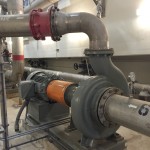 Pumps and Motors
Pumps and Motors
(click to listen in a new window)This packed full episode deals entirely with pumps and motors. Discussing pumps, we specifically focus on volute and turbine centrifugal pumps, since they are by far the most common used in the water industry. We discuss the workings of each and different types of each in detail. We also discuss parts of a pump / motor assembly, and causes of pump failure, focusing in depth on pump cavitation. This episode is a must listen for anyone taking any type of distribution system focused exam.
12 December 2011, 7:01 am - Water Sifu #22: Water Treatment Techniques, Part 2
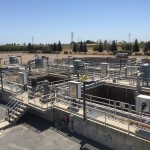 Treatment Techniques, Part 2
Treatment Techniques, Part 2
(click to listen in a new window)Part 2 of 2 in a series on water quality problems and treatment techniques… I begin this show by talking about my recent meetings with Leo Laporte, “The Tech Guy”, and Cliff Ravenscraft, “The Podcast Answerman”. I then spend a brief time discussing my latest project “The Other Water Math DVD you’ve been looking for”, which works as a Part 2 to my existing Math DVD, and takes the subject to the next level.
Hopping into the meat of the show, we continue right where we last left off, covering tastes and odor problems in detail, including adsorption with granulated or powdered activated carbons, oxidation, and air stripping. After that, we move on to cover iron and manganese problems and trihalomethanes. If you are planning on testing anytime soon, the two shows in this series are critical information, and a true “must listen and learn”. Please share with any friends in the water industry.
11 November 2011, 6:40 pm - Water Sifu #21: Water Treatment Techniques, Part 1
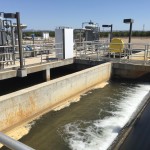 Treatment Techniques, Part 1
Treatment Techniques, Part 1
(click to listen in a new window)This episode is the first part of a two part show concentrating on material you need to know for your state exams concerning different harmful or undesirable issues which can occur in water and the techniques we can use to remedy them. Items covered on this show include Waterborne Pathogens (virus, bacteria, protozoans), Turbidity, Corrosive Water (problems associated with, types of corrosion, testing, and prevention), and Excessive Hardness.
At the beginning of this show I also spend some time discussing some you tube videos which I will be producing going forward, as well as different ways to contact me via social media.
11 October 2011, 2:45 am - Water Sifu #20: Water Chemistry
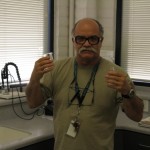 Water Chemistry
Water Chemistry
(click to listen in a new window)The meat of this episode focuses on some water chemistry subjects which can initially be difficult to grasp, specifically the subjects of pH, alkalinity, and calcium carbonate saturation. We will discuss them in detail, explaining how they interact and affect each other. We will also get into discussing calcium carbonate saturation, and talk about how controlling this, through marble testing or use of the Langelier saturation index, can help control corrosive water or deposition of scale in water systems.
9 September 2011, 4:20 pm - Water Sifu #19: Meters and Valves
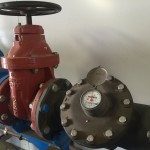 Meters and Valves
Meters and Valves
(click to listen in a new window)In this episode of The Water Sifu, I spend a brief time discussing some things going on in my life, as well as upcoming episodes, and then jump into the meat of the show, discussing the types of meters and valves you will find in a distribution system. Items covered under meters include types of positive displacement meters and velocity meters. Types of valves discussed include ball, plug, diaphragm, gate, butterfly, pressure reducing, surge control, check, foot, pressure relief, altitude, air, and float.
28 April 2011, 5:05 am - More Episodes? Get the App
- http://www.thewatersifu.com
- English
Your feedback is valuable to us. Should you encounter any bugs, glitches, lack of functionality or other problems, please email us on [email protected] or join Moon.FM Telegram Group where you can talk directly to the dev team who are happy to answer any queries.
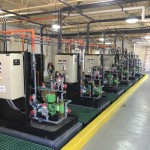
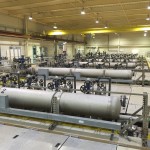
 Scaling UP! H2O
Scaling UP! H2O
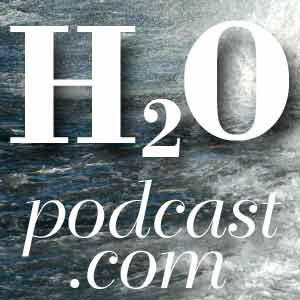 Water Environment - Lakes, Rivers, Oceans, Aquifers, Groundwater - Water (h2o) Environmental Issues: Conservation, Sustainabi
Water Environment - Lakes, Rivers, Oceans, Aquifers, Groundwater - Water (h2o) Environmental Issues: Conservation, Sustainabi
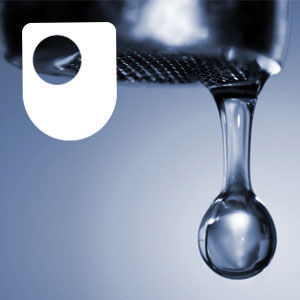 Water Treatment - for iPod/iPhone
Water Treatment - for iPod/iPhone
 Breaking Your Chains
Breaking Your Chains
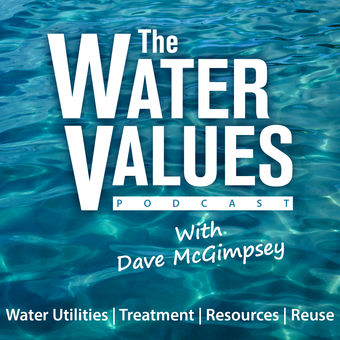 The Water Values Podcast
The Water Values Podcast